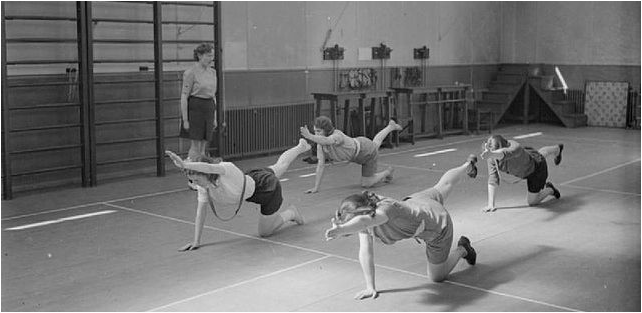DIET OR EXERCISE
WHICH IS BETTER FOR WEIGHT LOSS?
“I can’t lose weight because my (insert one of the following here — neck, back, knees, feet, shoulders) are too painful for me to exercise.” An excuse I hear constantly in the office.
The idea behind the title of their paper is an old one. As an avid weightlifter and ex-powerlifter, I have heard, “you can’t work out hard enough to overcome a crappy diet,” for years. Now we have three prominent Cardiologists from three different universities on three different continents (Europe, Africa and North America) telling us the same thing. Diet is a much bigger part of weight loss than is exercise.
Among other things, they discuss a study that I myself have dealt with on this site (
What is Metabolic Syndrome, and Why are Children Getting It?) from a 2013 edition of the Annals of the New York Academy of Sciences), revealing that, “poor diet now generates more disease than physical inactivity, alcohol and smoking combined. Up to 40% of those with a normal body mass index will harbour metabolic abnormalities typically associated with obesity, which include hypertension [HIGH BLOOD PRESSURE], dyslipidaemia [HIGH CHOLESTEROL is the most common], non-alcoholic fatty liver disease [most fatty liver disease is caused by OBESITY] and cardiovascular disease [Heart Attacks, Stroke, Hardening of the Arteries, etc, etc, etc].“The letter goes on to say that the media, the general public, and treating physicians are getting it wrong when they blame lack of exercise (or simply the number of calories that are being consumed) instead of blaming the way people are eating. “
Instead, members of the public are drowned by an unhelpful message about maintaining a ‘healthy weight’ through calorie counting, and many still wrongly believe that obesity is entirely due to lack of exercise. This false perception is rooted in the Food Industry’s Public Relations machinery, which uses tactics chillingly similar to those of big tobacco” I have talked extensively on this site about the futility of counting calories, virtually always invoking GARY TAUBES‘ famous treatise on the subject. How though, are food industry tactics similar to those previously used by “Big Tobacco”? Allow me to explain.Back when I was a kid (the 70’s and 80’s), magazines were inundated with ads for cigarettes — much like the way that they are today inundated with ADS FOR DRUGS. Many of these, like “Joe Camel”, were aimed at the younger crowd, and particularly kids. However, one of the trends that I watched emerge was the advertising of certain brands as “lights“, “low tar“, or “milds“, much like the way that certain kinds of “Low Calorie” foods (or CERTAIN KINDS OF SODA) are advertised today. In fact, by the mid 1990’s, these types of cigarettes accounted for 50% of all cigarette advertising dollars. These cigarettes were always advertised as a “healthier alternative” to regular cigarettes even though research has shown this to be false. But advertising, whether it’s Ronald McDonald, the Marlboro Man, or those black-eyed
Tareyton smokers that would “rather fight than quit,” make an impact on consumers — otherwise advertisers would not spend billions on it.The article touches on the DIETARY FAT -vs- SIMPLE CARBOHYDRATE debate, talking about the ways that SUGAR will destroy your health (HERE). In fact, the authors go so far as to say……
“
For every excess 150 calories of sugar (say, one can of cola), there was an 11-fold increase in the prevalence of type 2 diabetes, in comparison to an identical 150 calories obtained from fat or protein. And this was independent of the person’s weight and physical activity level; this study fulfills the Bradford Hill Criteria for causation. A recently published critical review in nutrition concluded that dietary carbohydrate restriction is the single most effective intervention for reducing all the features of the metabolic syndrome and should be the first approach in diabetes management, with benefits occurring even without weight loss“Ultimately, we need to ask the question of why? Why doesn’t exercise promote WEIGHT LOSS while LOW CARB or PALEO-LIKE DIETS do? My best guess is that it’s because the majority of the people who exercise, aren’t exercising in the best manner they could be (HERE). If your form of exercise involves lots of low-intensity cardio, there is not only the probability that you are not optimizing your exercise time, but could actually be doing yourself harm. To better understand why, start looking at the provided links. Oh, and to see that Metabolic Syndrome is a much bigger issue than diet or exercise, take a look at THIS.

